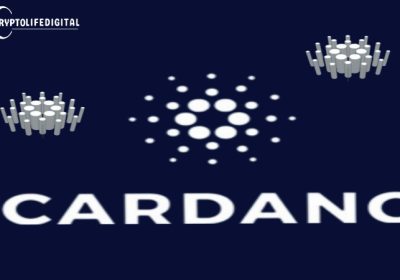Charles Hoskinson and David Schwartz Challenge SEC’s Classification of ADA as a Security in Binance and Coinbase Lawsuits

The recent lawsuits filed by the U.S. Securities and Exchange Commission (SEC) against Binance and Coinbase have triggered a response from prominent figures in the cryptocurrency space. Charles Hoskinson, the founder of Cardano (ADA), and David Schwartz, Ripple’s Chief Technology Officer (CTO), have expressed their concerns over the SEC’s classification of ADA as a security in these cases. Their reactions came in response to tweets from Bill Morgan, a pro-XRP attorney, who questioned the validity of the SEC’s argument.
The SEC’s lawsuits against Binance and Coinbase accuse the exchanges of facilitating unregistered securities transactions. Interestingly, the Commission includes ADA on the list of alleged securities in both cases, sparking a debate within the crypto community.
Bill Morgan Raises A Doubt About SEC’s Stand Against Binance And Coinbase
Taking to Twitter, Bill Morgan, known for his pro-XRP stance, raised doubts about the SEC’s argument and highlighted the importance of considering technological progress and innovation in the crypto industry. His tweets challenged the regulatory agency’s classification of ADA as a security.
Why does the SEC thinks that #ADA is a security.
Imagine you create a product and then you add some feature or capability that makes it better. This happened a lot in the history of smart phones. You announce this improvement and how it will increase demand for your product/1— bill morgan (@Belisarius2020) June 10, 2023
Cardano’s Founder Reacts To SEC’s Position
In response, Charles Hoskinson, the visionary behind Cardano, expressed his disagreement with the SEC’s position. Hoskinson questioned the validity of labelling ADA as security, emphasizing the need to recognize the advancements made in the cryptocurrency space. He argued that the evolving nature of the industry necessitates a nuanced understanding of digital assets and their diverse functionalities.
The financing was done in Japan, no ada was sold, only vouchers, marketing was in Japanese, priced in Yen and Bitcoin, no one from the United States participated. Ada launched in 2017 as an airdrop two years after the voucher sale. The facts might be inconvenient to the SEC, but…
— Charles Hoskinson (@IOHK_Charles) June 11, 2023
Similarly, David Schwartz, the CTO of Ripple, echoed Hoskinson’s sentiment. Schwartz voiced his concerns regarding the SEC’s classification of ADA as a security, asserting that it fails to acknowledge the progress and innovation achieved by blockchain projects like Cardano. He emphasized the importance of regulatory clarity and guidance that accounts for the unique characteristics of various cryptocurrencies.
I guess their argument must be the ICO was a securities offering, just not an SEC issue because of no US nexus. But then I thought it was their position that secondary sales were exempt. The ICO transactions didn't take place on exchanges. So what's the investment contract?
— David "JoelKatz" Schwartz (@JoelKatz) June 11, 2023
The reactions from Hoskinson and Schwartz reflect a growing sentiment within the crypto community, advocating for a regulatory approach that acknowledges and embraces technological advancements. Many believe that a rigid categorization of digital assets as securities could stifle innovation and hinder the potential of emerging blockchain platforms.
Read Also: Terra Classic Community Approves Parity Upgrade Proposal for Ecosystem Overhaul
Is ADA A Security?
The ongoing debate surrounding the classification of ADA as security highlights the need for regulatory agencies to keep pace with the rapid evolution of the crypto industry. As cryptocurrencies and blockchain technologies continue to mature, it becomes increasingly crucial for regulators to adopt flexible frameworks that encourage innovation while ensuring investor protection.
It remains to be seen how the lawsuits against Binance and Coinbase will unfold and whether the SEC’s classification of ADA as a security will withstand legal scrutiny. In the meantime, the reactions from Charles Hoskinson and David Schwartz serve as a reminder of the ongoing discourse surrounding the regulatory landscape for cryptocurrencies and the importance of fostering an environment that promotes innovation and responsible growth.
Disclaimer: The information provided in this news article is based on public statements made on social media platforms and should not be considered legal or investment advice. Cryptocurrency regulations may vary across jurisdictions, and individuals are encouraged to seek professional guidance regarding compliance and investment decisions.
Follow us on Twitter, Facebook, Telegram, and Google News

Cryptolifedigital is a cryptocurrency blogger and analyst known for providing insightful analysis and commentary on the ever-changing digital currency landscape. With a keen eye for market trends and a deep understanding of blockchain technology, Cryptolifedigital helps readers navigate the complexities of the crypto world, making informed investment decisions. Whether you’re a seasoned investor or just starting out, Cryptolifedigital’s analysis offers valuable insights into the world of cryptocurrency.









